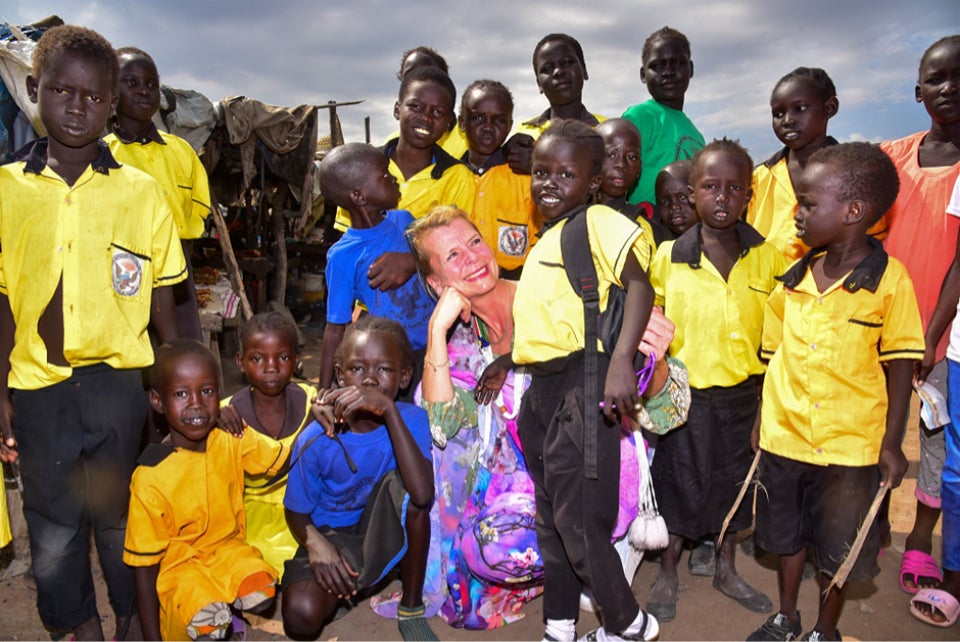In South Sudan, UN Women Deputy Executive Director Åsa Regnér galvanizes action for women’s participation in the peace process and gender equality
Date:
UN Women Deputy Director Åsa Regnér conducted a four-day mission in South Sudan, with Dr Maxime Houinato where they met with government officials, civil society representatives, UNCT and partners. The purpose of the mission was to champion tangible actions and re-emphasize the importance of women’s empowerment, meaningful participation, and leadership in the implementation of the Revitalized Peace Agreement.
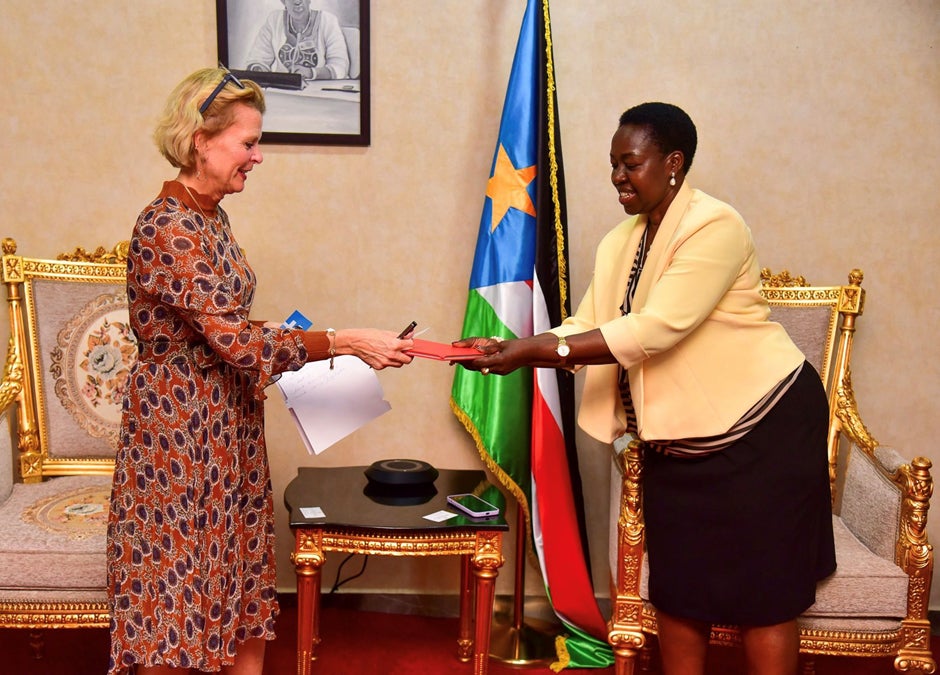
Deputy Executive Director Regnér with the Speaker of Parliament Honorable Nunu Jemma Khumba in her office. Photo: UN Women/James Ochweri.
This was the first visit of Ms. Regner to South Sudan, the world’s newest nation which gained independence in 2011.
South Sudan is one of the world’s most fragile states with a long history wrought with conflict. The history of violence has left the vast majority of the population in dire socio-economic and humanitarian crises in which the most vulnerable and fragile feel the brunt of the impacts. The current peace agreement was signed in 2018, known as the Revitalized Agreement on the Resolution of the Conflict in South Sudan (R-ARCCS) between President Salva Kiir, Vice President Riek Machar and other parties. The current transitional period of the Revitalized Peace Agreement has recently been extended to conclude in February 2025, while a fragile peace continues to hold. Intercommunal and ethnic conflicts, food insecurity, unprecedented levels of flooding and other crises disproportionately impact women and girls. In addition to that, women and girls continue to face particular obstacles due to pervasive gender discrimination and harmful cultural practices such as early and forced marriages, and patriarchal norms.
UN Women Country Office supports the Government of South Sudan in eliminating violence against women, addressing harmful practices and promoting positive social norms, among other priorities. Ms. Regner’s mission started with a visit to a Special Protection Unit (SPU), South Sudan National Police Service. These units respond to and investigate sexual and gender-based violence (SGBV) cases. The absence of shelters in Juba, and with only two countrywide, remains a challenge, and the low number of female police officers at the SPUs is a concern. UN Women in South Sudan works with the Government and other partners to address these issues.
Ms. Regner met with South Sudan’s female ministers to show solidarity with them and to support women’s leadership and meaningful participation in the implementation of the Revitalized Peace Agreement, especially the 35 per cent affirmative action on women’s representation and leadership, and to support the implementation of the 2nd Generation National Action Plan on Women, Peace and Security. Among the women ministers who attended the meeting were Minister of Gender, Child and Social Welfare, Hon. Aya Benjamin Warille; Minister of Parliamentary Affairs, Hon. Mary Nawai; Minister of Agriculture and Food Security, Hon. Josephine Joseph Lagu; Minister of Health Hon. Yolanda Awel Deng and Minister of Culture, Museums and National Heritage Hon. Nadia Dudi.
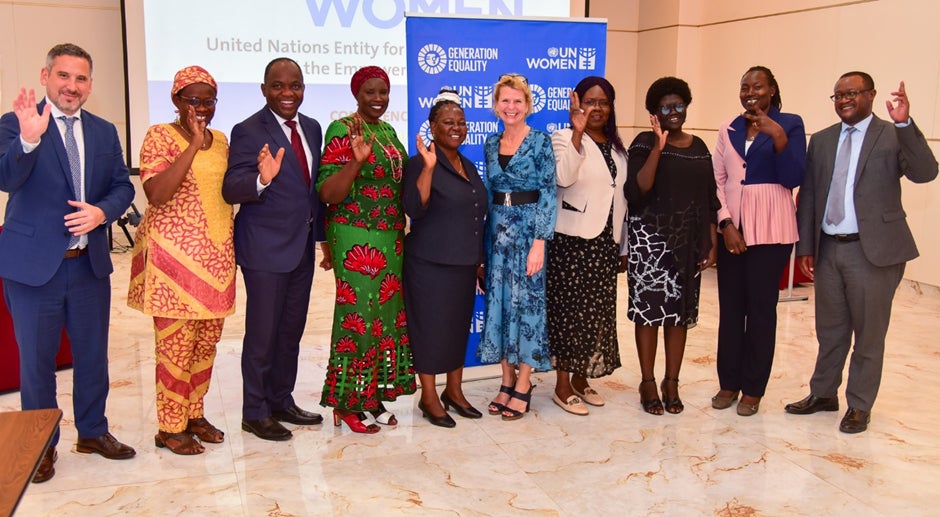
In a bilateral meeting with Minister of Gender, Child and Social Welfare, Hon. Aya Benjamin Warille, Deputy Executive Director commended her for her leadership in promoting gender equality and advocated for the enactment of the Anti-Gender-Based Violence Bill to ensure that women and girls are protected against sexual and gender-based violence.
Ms. Regnér also met with civil society representatives from women-led organizations to hear their views on the current gender equality situation and to discuss the civil society’s role in establishing accountability mechanisms to promote an empowering environment for women.
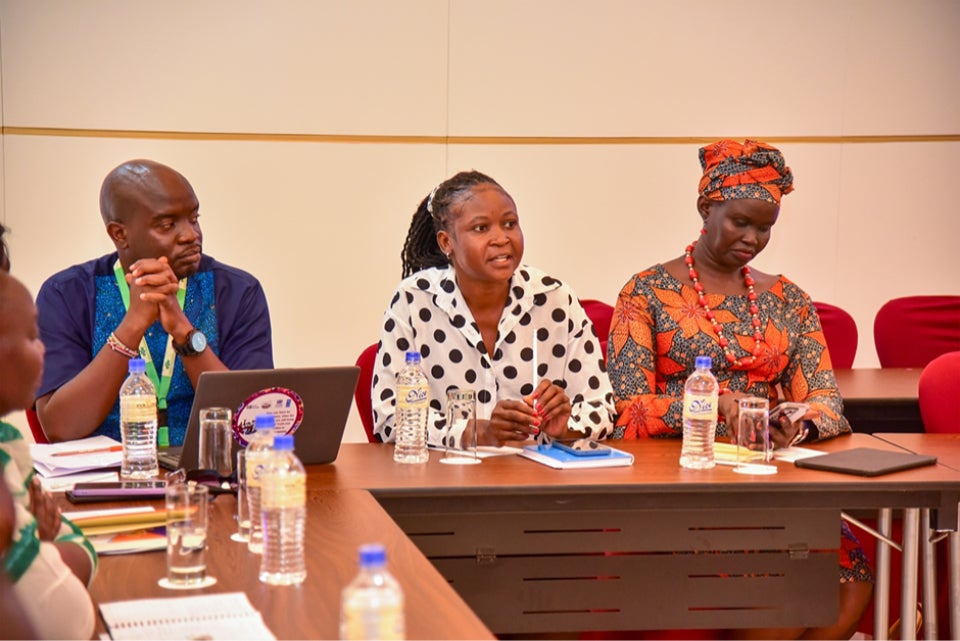
“Women and girls’ participation is their right and indispensable to peace and development. UN Women will continue supporting their leadership,” said Ms. Regnér at the meeting with women’s rights activists.
Among some of the priority issues voiced by women’s rights organizations were women’s meaningful participation in politics, governance and security structures; full implementation of the 35 per cent affirmative action; availability of gender data; supporting survivors of gender-based violence and capacity-building for women’s organizations and feminist movements.
Deputy Executive Director Asa Regner had a fruitful meeting with Mr. Firas Raad, World Bank Country Manager for South Sudan to discuss joint collaboration to support women and girls in South Sudan, in the areas of economic empowerment and supporting survivors of violence.
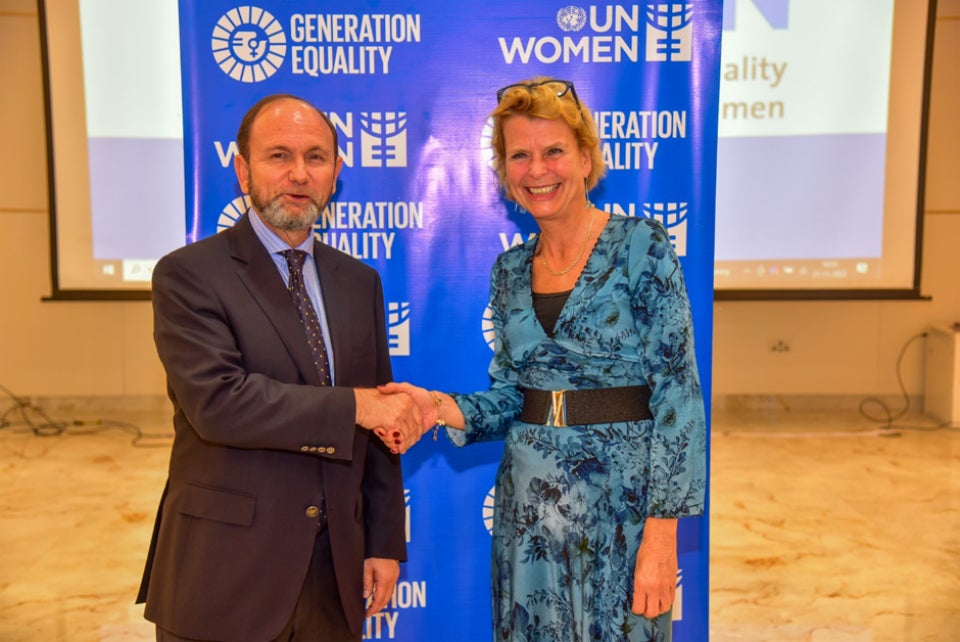
DED Regner met with Heads of UN Agencies in South Sudan and discussed how the agencies can collectively deliver for women and girls in the country.
“Thank you, UN colleagues, for your programmatic efforts in supporting the Government in the implementation of the peace agreement and advancing gender equality,” said Ms. Regner.
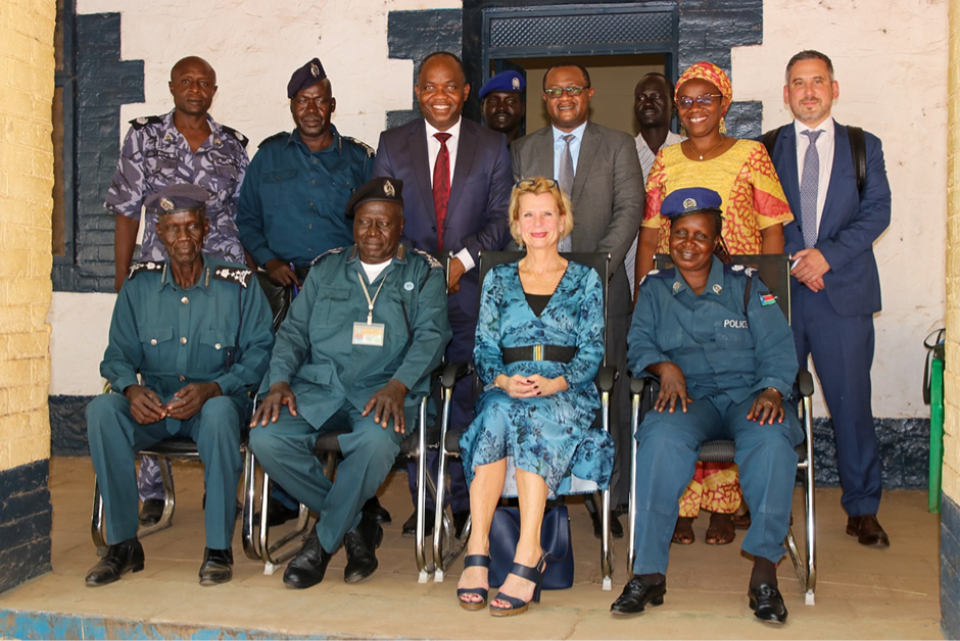
Ms. Regnér had an inspirational meet and greet with the members of the Women’s Security Sector Networks comprising membership from the police, prisons services, the defence forces, wildlife, civil defence and national security services. The meeting gave the women in uniform in South Sudan a chance to share their experience and showcase the impact of UN Women’s support to the ongoing Security Sector Reform.
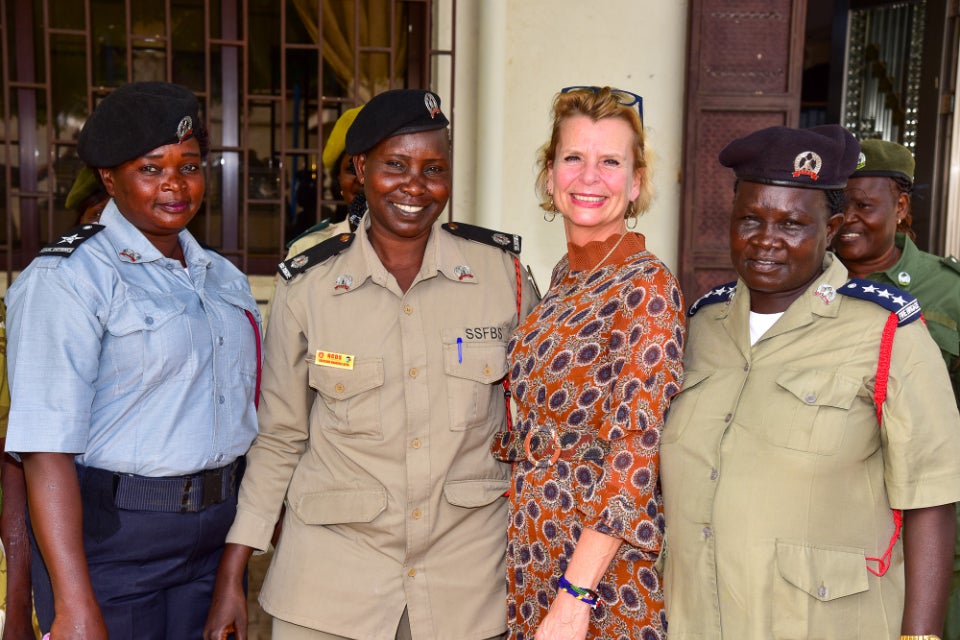
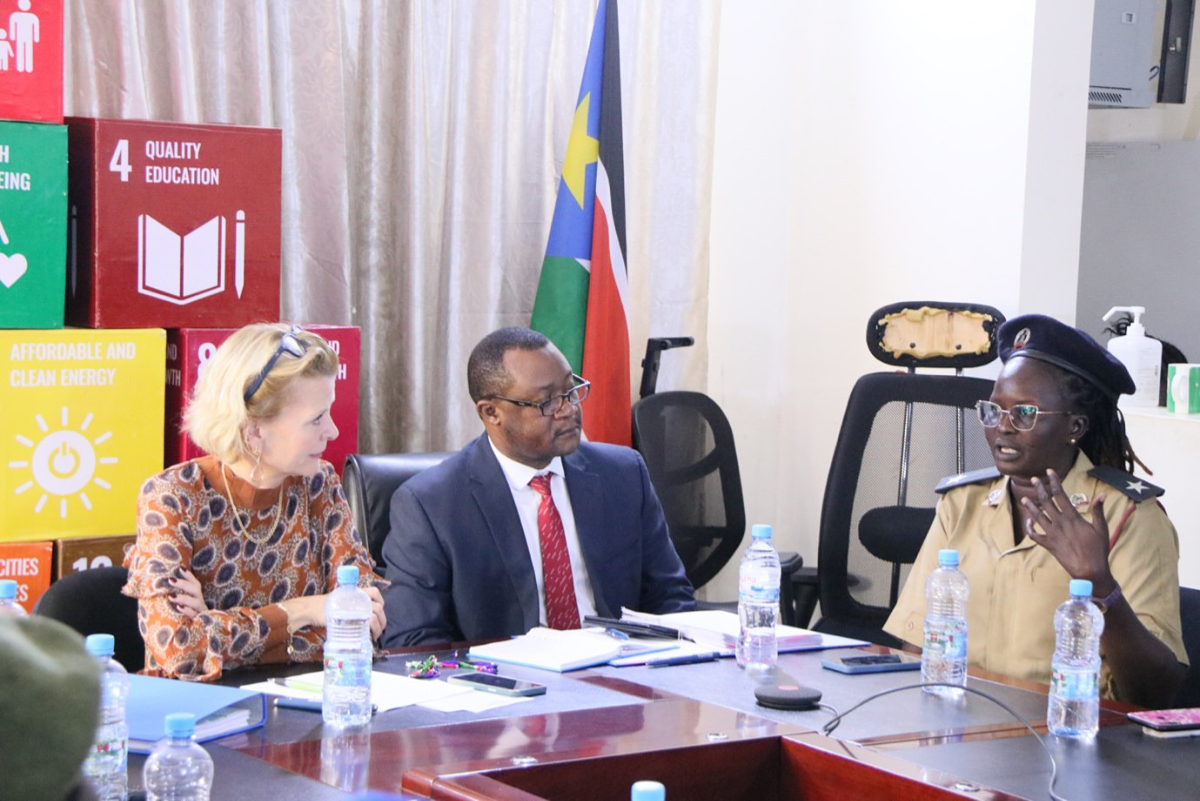
UN Women’s key development partners also figured prominently in the agenda. DED Regner attended a productive roundtable meeting with UN Women’s development partners hosted by the Swedish Embassy and discussed gender equality in South Sudan in the context of climate change, the need for accelerated response to the impact of climate change on women and girls in South Sudan and building resilience of women and girls in the context of climate change.
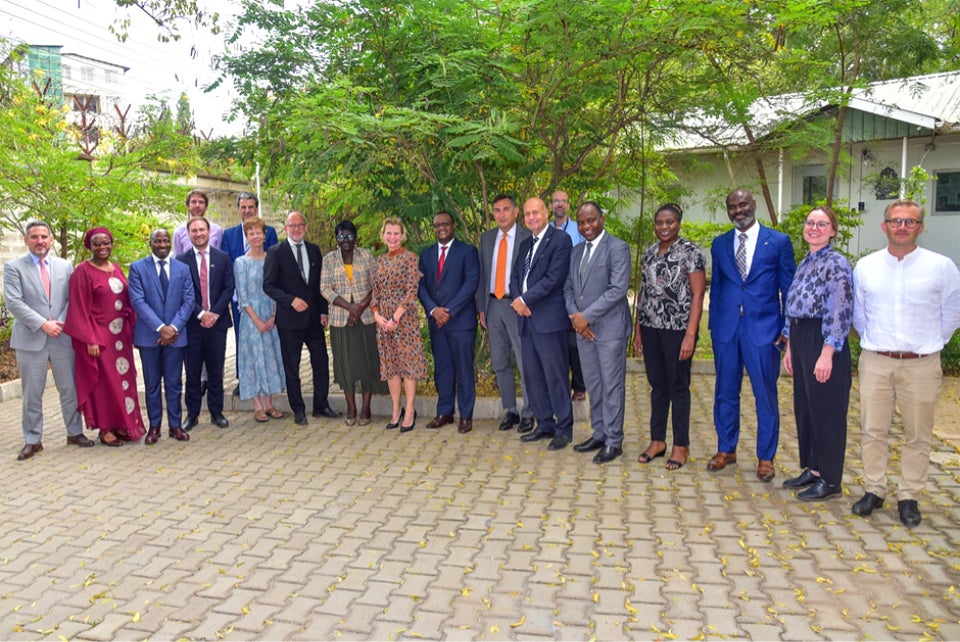
Ms. Regnér also had a chance to speak to journalists from various media houses in South Sudan. She emphasized women’s inclusion in the implementation of the peace process, women’s leadership, and economic empowerment.
“At UN Women, we value the partnerships that we have with media professionals, and we know the power of the media. Media is a key entry point for promoting gender equality because of its unique reach to broad sections of the population, as well as its ability to influence and shape ideas and perceptions about what is considered socially acceptable,” said Ms. Regner. DED Asa Regner invited media partners to join hands to transform social norms.
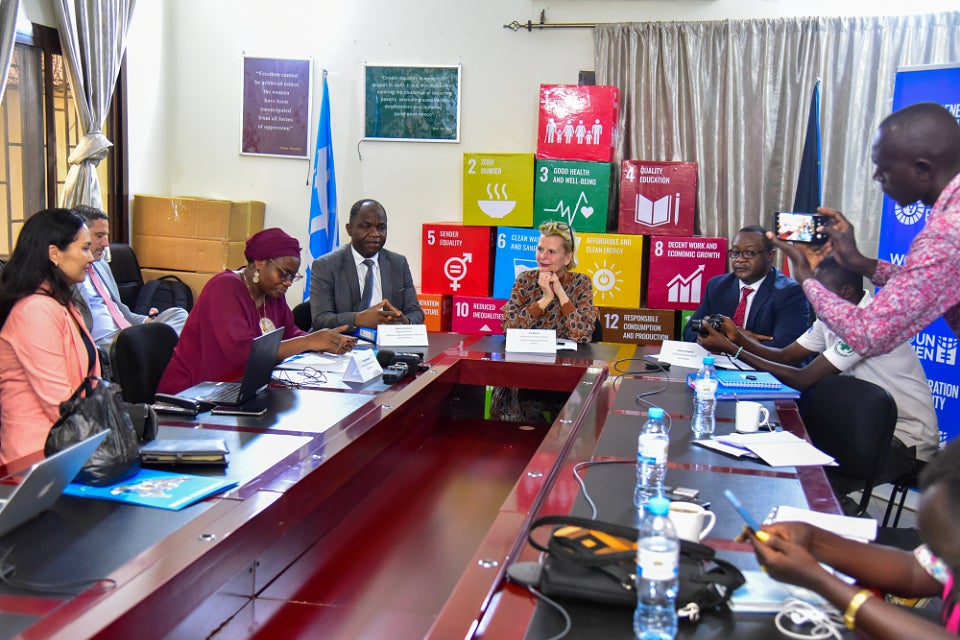
On the last day of her visit to South Sudan, Ms. Regnér visited the camp for internally displaced people (IDP camp) in Mangateen, Juba, to meet project beneficiaries and see the impact of UN Women’s income generating activities and peacebuilding initiatives. With the support from Japan, UN Women has implemented a project at the IDP Camp on increasing access to livelihoods and protection from COVID-19 for IDPs, women and their host communities. As a result of the intervention, 25 village savings and loans association (VSLA) groups, each with 30 members from diverse background (625 women and 125 men) were capacitated in saving and lending as well as business and financial management. The trainings equipped the beneficiaries with adequate skills to establish and diversify their businesses and to keep records of their businesses to improve their lives and livelihoods. Through the small businesses, most (90 per cent) of the female participants were able to earn an income which enables them to have 3 meals in a day, send their children to school, and have access to proper medication, which was not the case before the project.
Speaking at the conclusion of the mission, Ms. Regner congratulated South Sudan for its progress on women’s empowerment, gender equality, and peace and security. She also confirmed UN Women’s commitment and strong support as the country continues to recover from conflict, consolidate and sustain peace and prosperity.
